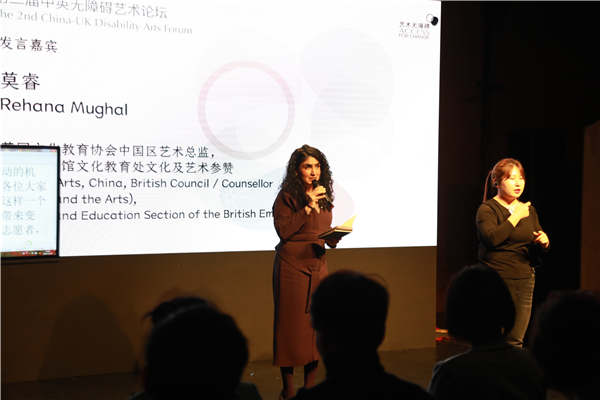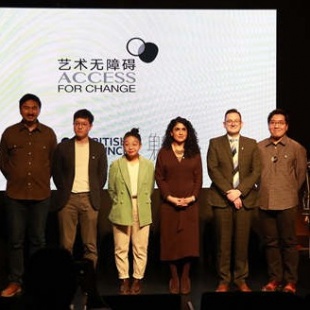Giving options to promote inclusion


For instance, although the accessible facilities of the theater correspond to industry standards, the facilities are not often used, for many people with disabilities find it difficult to even leave their own house, let alone enter a theater venue. The art therapy projects are usually conducted within a limited span of time, unable to suffice over the long-term therapeutic timescale.
"How drama and art therapy can continue to be selected and used is in fact a broad issue concerning the operational system of an NGO, with a lot of work to be done in our country to improve and advance the system... We as an art organization can only do a very small part in it," Wang says.
Representatives from UK organizations also shared their experience via video, including Michelle Taylor, director for change at Ramps on the Moon, an organization that promotes the inclusion of disabled people in the theater industry, and Natasha McEnroe, keeper of medicine at the London Science Museum, which sets an example in engaging diverse social groups with innovative exhibition experiences.
"Accessibility covers the aspects of facilities, spaces, humanities, and interpersonal understanding. These are all important components of disability arts," says Peng Yujiao, founder of Beijing Leyirong Social Work Office.
The forum also marked the launch of "Access for Change", a platform initiated by the British Council and Body On&On Culture Exchange Center, also co-host of the forum, that endeavors to connect arts and cultural organizations from China and the UK.
"This is an opportunity for different cultural institutions here in China to come together around one common goal, and that common goal is about supporting access and also supporting inclusive arts, and working towards putting inclusive arts and disability arts on the stage," Mughal says.
Highlighting equality, diversity and inclusiveness in the arts and cultural landscape, the platform aims to eradicate the social barriers faced by people with disabilities, deepen the connection with the disabled groups, and engage them in art and cultural projects.
So far, five theater venues, five arts and cultural organizations, two NGOs and a few media organizations have joined the platform.
"I feel that the concern for disability and inclusive arts is not only a matter of justice, but also an issue that we need to work on together toward a common future, with the progression of social concepts and people's attitude," Ge Huichao, founder of Body On&On, says.
She says that via the forum, she hopes that China can draw on the experience of the UK in promoting disability arts and explore a pathway suited to the context of China.





































